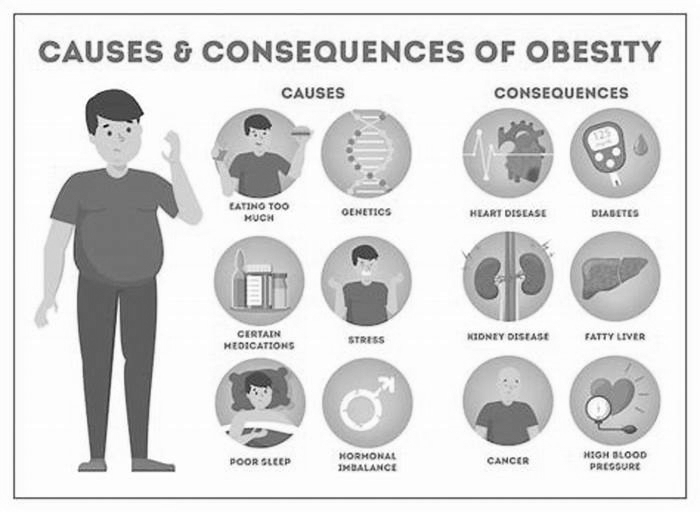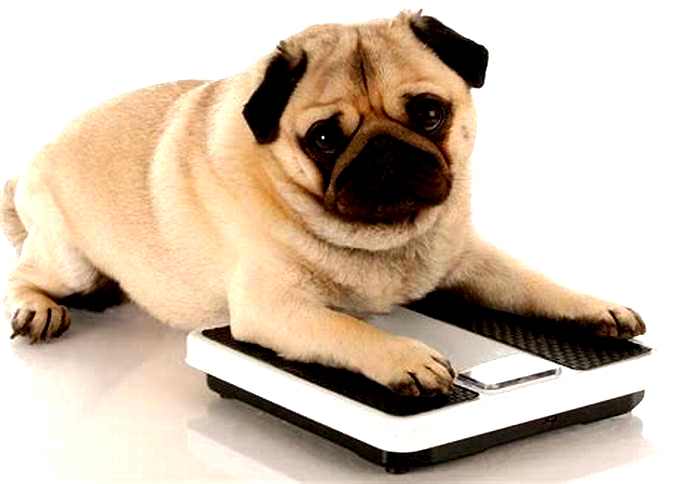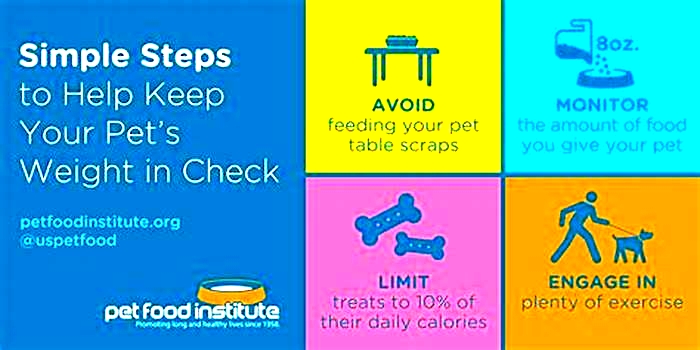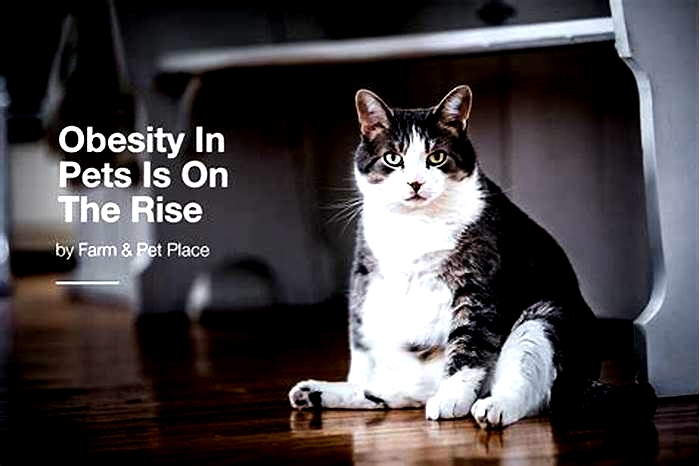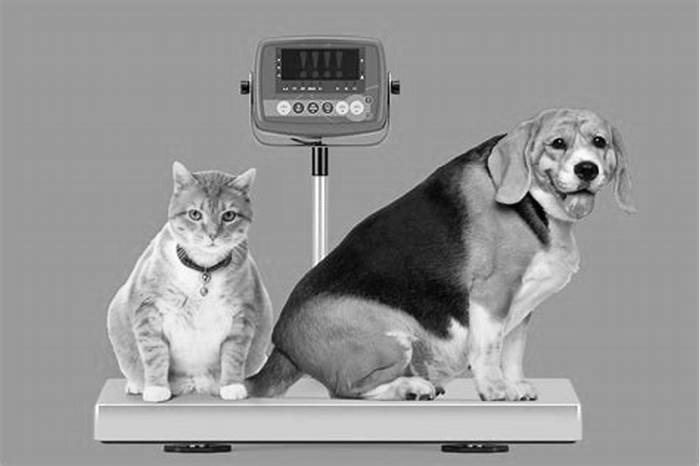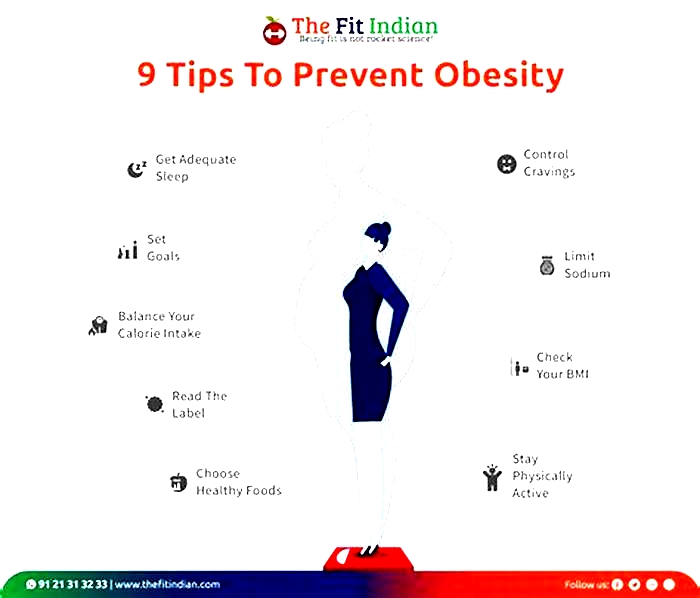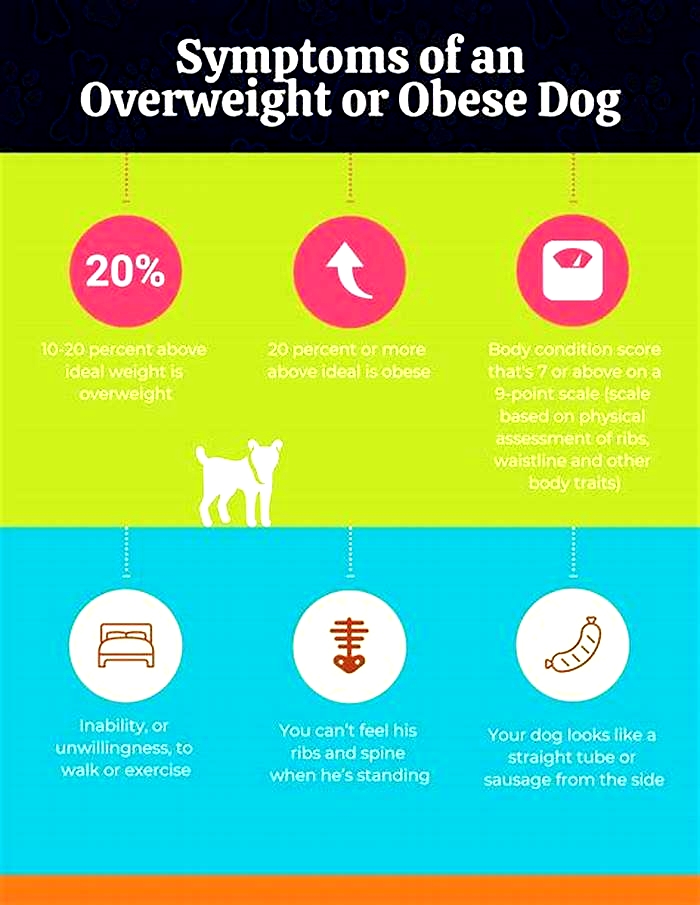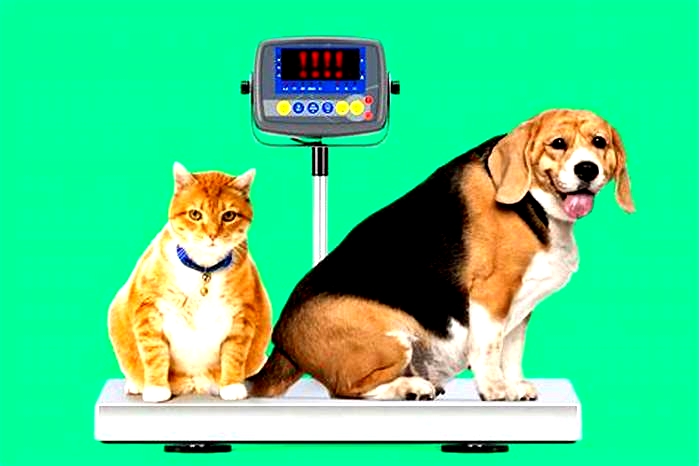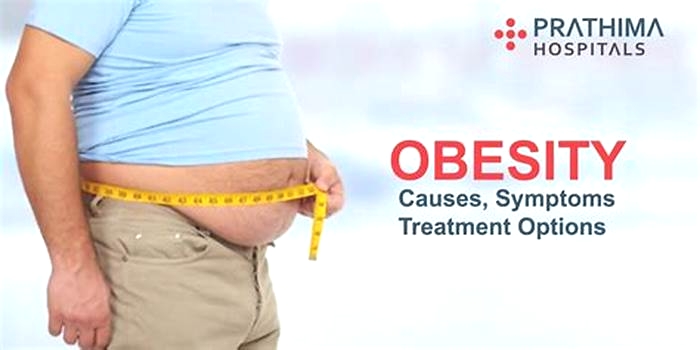Is pet obesity an epidemic
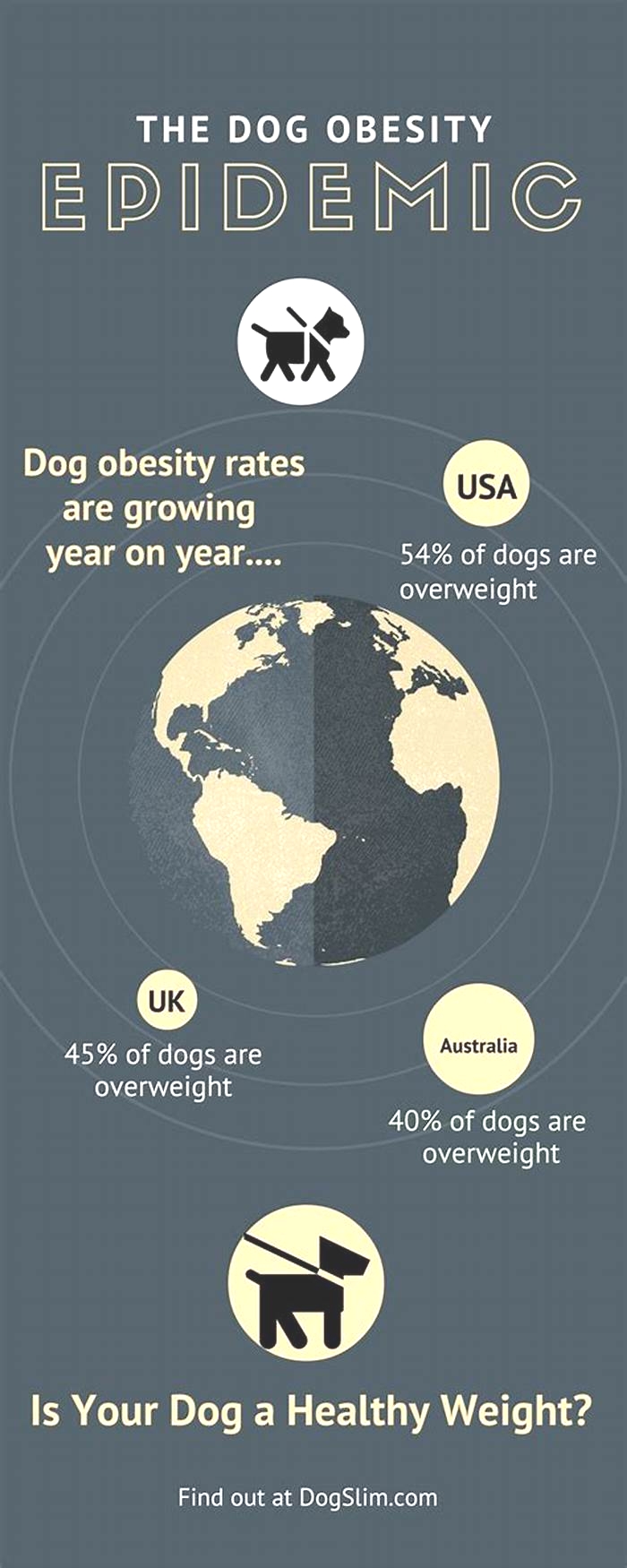
Obesity epidemic affecting millions of pets
The obesity epidemic is affecting not only people but their pets as well.
More than half the dogs and cats in the U.S. are at least overweight, and one out of five is obese, according to the Association for Pet Obesity Prevention.
Just like their human companions, excess weight can bring on a host of health problems for pets. Being overweight can increase risk of osteoarthritis, insulin resistance, type 2 diabetes, high blood pressure, heart and respiratory disease, cranial cruciate or anterior knee ligament injury, kidney disease and some cancers. It can decrease an animal's life expectancy by up to 2.5 years.
Banfield Pet Hospital, which operates more than 850 veterinary facilities across the U.S., found that dog diabetes rose 32 percent between 2006 and 2010, while the number of cats with the disease went up 16 percent during the same time frame.
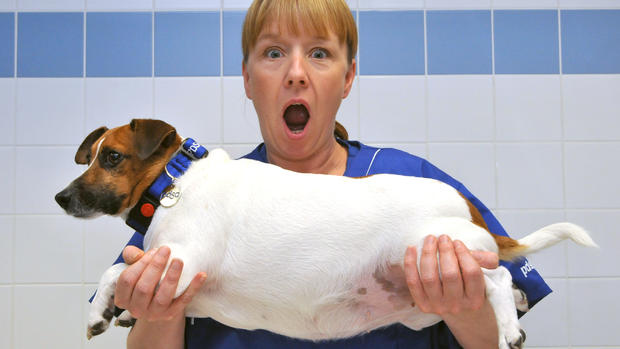
Senior veterinary surgeon Sean Wensley previously told CBS News one of the biggest issues is that weight problems can affect a pet's quality of life.
"For cats, you'll see they're reluctant to play and they are unable to enjoy life," he explained.
Without a scale, you can tell if your pet is overweight by looking a few key factors, known as body conditioning scoring. Wensley said if you look from above the animal, you should see where their waist comes in below the rib cage near the pelvis. You should be able to feel their ribs, but not see them. They also shouldn't have excess abdominal fat if they are a cat or fat near the base of their tail if they are a dog, because this signifies they have a lot of unhealthy fat around their internal organs.
The U.K. organization the People's Dispensary for Sick Animals (PDSA) has an annual contest known as the Pet Fit Club to help encourage owners of overweight pets to help them lose some weight. The most recent winner was a Jack Russell terrier named Ruby who slimmed down from 20 pounds to 13.2 pounds.
"This is a fantastic slimming success story - well done Ruby!... The weight loss means she will feel much fitter and happier, and her life expectancy is likely to be longer now than she has shed the excess weight," PDSA senior veterinary surgeon Elaine Pendlebury said in a press release.
How do you get pets to lose the extra weight? One study suggested that when cats are given small, frequent feedings with the appropriate amount of food to maintain a healthy weight, along with more water to drink, they also start exercising more.
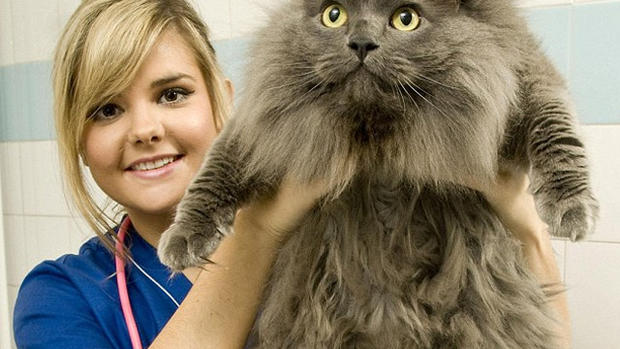
Wensley also suggested that pet owners should cut down on treats and other food outside of meals. Most pet food these days is balanced to include all necessary nutrients, so anything else you give them -- whether it comes from the table or from a treat jar -- is all extra calories.
"A little piece of cheese for a cat is like giving a human a hamburger," he said.
Pet owners should follow exact feeding guidelines and measure out portions, not just fill the bowl.
Finally, taking your pets for walks and playing with them more actively can let out pent-up energy and give them a good workout. Plus it's good for you, too. Studies have shown that people who walk their dogs are much more likely to achieve the recommended 30 minutes of exercise a day.
America's Pets: Health & Happiness
More MorePet obesity epidemic is top welfare concern for vets
Over 60% of vets say obesity is the biggest health and welfare concern for UK pets, according to figures released by the British Veterinary Association (BVA) this World Obesity Day (11 October).
BVAs Voice of the Veterinary Profession survey polled over 1,600 vets across the UK about the welfare issue that they were most concerned about, with almost two-thirds of companion animal vets citing obesity or overfeeding. As with humans, obesity is a very serious health issue for pets and can lead to life-long and life-threatening illnesses such as heart disease, breathing problems, diabetes and arthritis.
Not following or understanding pet food feeding guidelines, providing too many treats and snacks, and a lack of exercise are all issues contributing to the expanding paunches of our nations pets. Although many people believe they are being kind to their animals by providing treats and bigger food portions, they are instead, unintentionally, contributing to their pets poor health and limiting their lifespan. Many owners also give their pets human food as a treat, however one human biscuit can equate to a whole packet when fed to an animal due to their smaller body size.
Gudrun Ravetz, President of the British Veterinary Association, said:Obesity is a potential killer for pets and we know more and more practices are seeing overweight animals coming through their doors. Many owners show love for their pet through food, but often this is a case of killing with kindness - most animals would instead enjoy playing or interacting with their owner just as much as getting a treat. Its also vital that owners understand how to correctly feed their pet and how to recognise a healthy body shape, which is something your local vet is well placed to help advise.
Professor Susan Dawson, President of the British Small Veterinary Association (BSAVA) added:It really is vital that vets and pet owners work together to help animals stay healthy. All companion animals deserve a nutritionally balanced diet; in fact it is a requirement of the Animal Welfare Acts. Of course it is tempting to give too many treats and easy to forget to weigh food out, but because obesity can cause serious health and welfare problems for companion animals BSAVA strongly recommends that bodyweight and body condition are monitored regularly and diets modified to maintain a healthy weight. Talk to your vet or vet nurse they can help.
Any pet can become obese and it is therefore very important to understand how to feed them correctly. If owners are in any doubt about their pets diet or unsure of the right food or portion size for their animal, they should speak to a local vet who will be able to advise them.
Pet obesity paw-demic: Survey reveals 1.4 million pets have piled on the pounds over lockdown
Pet obesity paw-demic: Survey reveals 1.4 million pets have piled on the pounds over lockdown
26 August 2021
PDSA launches #WeighUp campaign
Latest research has revealed that a whopping 1.4 million furry friends have piled on the pounds since March 2020.
The worrying findings unveil the true extent of what was already a growing pet obesity epidemic, with the pandemic creating a ticking time bomb threatening the lives of pets across the UK.
The study* of more than 4,500 pet owners by PDSA and YouGov also found that 1.4 million pets have fed their four-legged friends more human treats since the start of the coronavirus pandemic, adding further fuel to the pet obesity crisis. As a result, we are launching our #WeighUp campaign, which offers online videos and a free downloadable guide to help owners get their pets in shape.
A couch-potato lifestyle and excessive food consumption over lockdown is having drastic consequences for our pets. And the love we feel for our pets could also be contributing to the problem, as according to owners who said their pet was overweight, the most common factors preventing their pet from losing weight were: giving in when their pet begs for food (29 per cent), they like feeding treats to their pet (19 per cent), their pet is fussy with food (19 per cent), and they feel giving treats shows how much they love them (15 per cent).
PDSA Vet Nurse, Nina Downing said: Worryingly, the detrimental health effects of obesity in our four-legged family members dont appear to be well-recognised amongst owners. Nearly a third (31 per cent) dont agree that podgy pets are more likely to suffer from serious diseases, and 35 per cent dont agree that they are tragically less likely to live as long.
Obesity has been a huge problem among UK pets for a number of years and sadly our PAW Report indicates this is only getting worse. It is one of the biggest long-term health concerns for our pet population, because it is so commonly seen by vets and nurses, with vet professionals estimating that up to half of their pet patients they see each week are overweight**.
Animals who are overweight have a much greater risk of developing health problems such as arthritis and diabetes which can have drastic consequences, even shortening their life by up to two years***. We could therefore see this huge obesity problem impact on our pets health for years to come.
Surprisingly, pooches are being walked less frequently than pre-pandemic, with 38 per cent leaving the house just once a day (370,000 dogs), compared to 33 per cent in February 2020.
However, the good news is that many pups are enjoying longer excursions. Although its most common for UKs canine companions to be walked for 31 minutes to one hour (41%), 20 per cent are now getting their steps in over a one to two-hour period, up from 13 per cent before the pandemic.
Nina adds: With many owners spending more time at home with their pets since the start of the pandemic, the potential for weight gain due to increased feeding - particularly of treats - was always a concern.
Unfortunately, we know from previous PAW Reports that some owners struggle to recognise when their pet is overweight or obese and in need of weight loss, which is the first step towards helping them live a longer, happier life. Weve created a useful free guide to help owners identify if their furry friend is overweight, along with advice on how they can support their pet back to their target weight.
Professor Alex German, Royal Canin Professor of Small Animal Medicine at the University of Liverpool and world-leading expert in cat and dog weight management, adds: Pet obesity is a growing crisis that is having an impact on the long-term health and happiness of the UKs pets.
Both experience and research show that carrying excess weight can have huge health implications, including associations with shorter life expectancy. We all agree that we need to tackle pet obesity urgently, although losing weight can be challenging if you dont know where to start.
PDSAs #WeighUp guide is an invaluable tool to help empower owners to identify the signs of weight gain in their pet in the first place, and also take practical steps to address it.
Nina concludes: The good news is that even if your pooch or kitty is in need of a health kick, its never too late to help them eat well, exercise and play more, and live longer. In most cases, simply adapting their diet, replacing treats with playtime and encouraging them to move more can make a huge difference, and are all the ingredients needed for our pets to maintain a healthy weight, essential for a happy, healthy life.
Find out more about PDSAs #WeighUp campaign, which is proudly sponsored by Royal Canin, and to download its free guide to help check if your pet is a healthy weight and what to do if not.
Case study Paolo's story
A roly-poly pooch named Paolos love of sausage rolls and ham has seen him balloon to become 70% over his ideal weight.
Five-year-old chocolate Labrador-cross, who is a yo-yo dieter, currently weighs in at a whopping 51kg (8st), since he piled on the pounds during lockdown. He needs to lose 21kg (3st 4lb) to reach his ideal weight (30kg/4st 10lb).
Paolos doting owner Geraldine says that lockdown has exacerbated Paolos already topsy-turvy relationship with the scales.
She said: Weve always struggled with his weight as hes constantly on the lookout for food. But things got even worse when he started having seizures. His medication noticeably increased his appetite and I think this, alongside my health condition which meant I had to shield for a long time, made exercising him as we normally would very difficult during the pandemic, which has led to him piling the weight back on again. He loves any kind of meat especially chicken or sausages, and as he wont always take his medication, we sometimes have to encourage him to take it by hiding it in a sausage roll or piece of ham.
I want him to lose weight - it would break my heart if anything happened to him and Im determined to help him slim down with the help of the vets and their advice.
Penny Morgan, PDSA Vet, said: Geraldines and Paolos story is sadly not uncommon, and vet practices across the UK hear the same thing every week as obesity impacts the lives of millions of UK pets.
As veterinary professionals and as pet owners ourselves, we completely sympathise with the many owners who spent more time at home with their pets since the start of the pandemic. It was only too easy to indulge them with extra treats and titbits, increasing the potential for weight gain. And while pets with medical conditions like Paolo may have a more challenging weight-loss journey ahead, they can certainly achieve their goal, armed with expert advice, confidence and persistence.

